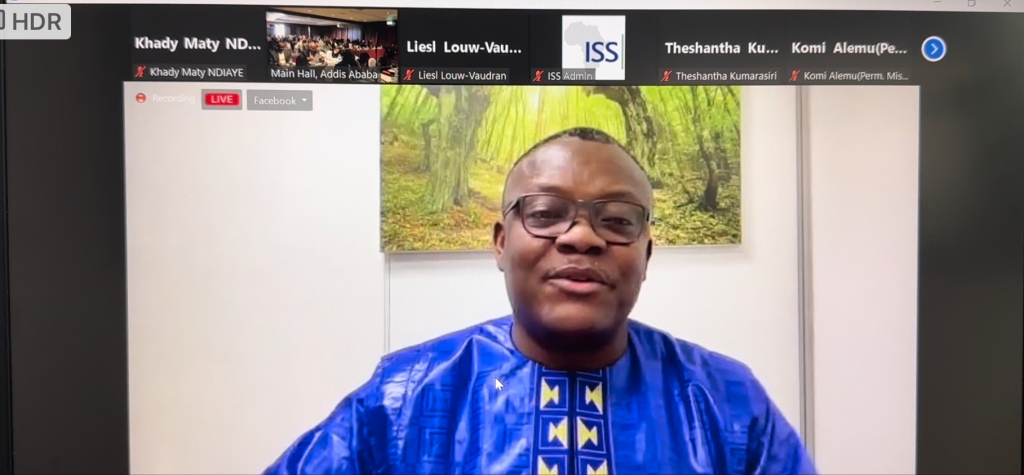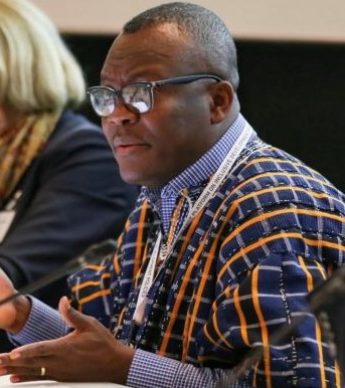You can watch the entire seminar here.
My submission is structured as follows: I will do a quick overview of the AU Reform then I will comment on the effectiveness of the reform in tackling continental challenges.
The institutional reform Agenda is based on 3 pillars.
- The scope of intervention, the mandate of the Union, the structure of its organs and offices
- Leadership and Management of the African Union
- How the Union should be funded to do the job

1/ The scope of intervention of the Union & the structure of the organs/offices of the AU
The idea here was to ensure that the AU focuses only on critical priorities with continental scope so that the body can make a real difference in improving the lives of African citizens.
Those continental priorities are the following:
- Political Affairs,
- Peace & Security,
- Economic Integration,
- Africa’s Voice in the global arena…
So, any other issues should be covered at regional and national levels..
But, when the Assembly of the AU went to restructure the Commission, this principle was simply not followed even though the departments had been reduced from 8 to 6. The AU does not seem to drop much thematic, almost none, in my view… Politics have prevented the great idea from President Kagame’s submission from being implemented, so we have only seen a reshuffling and not a refocusing…
2/Leadership and Management: This is still an unfinished business
Some important steps have been taken with the appointment of a not-so-new Management Team…
Positions are still being filled… but the big delay is around the review of the so many organs, institutions, and offices of the Union.
According to the latest report submitted to the just-ended Summit (Feb 2023), about sixty organs, institutions, agencies, and offices of the African Union still need to be reviewed….
In addition, …the reform of the working methods of the Peace and Security Council and its role in conflict prevention and crisis management is still pending.
The division of labor between the AU, RECs, RMs and Member States is still to be concluded.
3/How the Union should be funded to do the job
Here, the plan is for the African Union to be financed by resources from within the continent, but progresses have been very weak.
Development partners continue paying at least 65% of the African Union budget. This is happening despite all the talks, the different scenarios, and the decisions taken many years back, from the proposed taxes on air tickets by President Obasanjo in 2013 to President Kagame’s recommendations of a 0.2 % Levy on eligible imported goods into the continent. If this latest decision is fully implemented, the Union would be able to cover 100% of its operational cost, 75% of its program budget, and 25% of the Union’s peace support operations. We are far, very far from such a situation.
At each level of the reform, we have seen several member states opposing or simply delaying the process… Some have simply been ignoring the decisions taken… So, 6 years after this reform started, there is no visible impact on the efficiency and effectiveness of the African Union.
The Chairperson of the Commission, in recent days, very often has been raising the issue of lack of solidarity among member states.
The just-ended Summit (Feb 2023), after “noting with concern the long delays in the finalization of the remaining reform tasks”, gave another 6 months until July 2023 to the reform Unit to complete the remaining task…. But this is visibly unrealistic, considering the amount of work that remains to be done.
Missed opportunity!!!
What I consider as an unfortunate missed opportunity in the African Union reform framework is the absence an accountability mechanism, especially a sanction framework for non-compliance vis a vis the decisions, protocols, treaties, commitments adopted by member states…
The lack of sanctions for non-compliance has been a severe gap within the AU’s founding document, and the reform created an opportunity to correct it, but it has not happened.
I know there are opposing schools of thought about the issue of sanctions, but what can we achieve if we don’t plan for sanctions in our own policies?
In fact, the reform has reinforced the sanction for non-payment of annual contributions by member states, so it means the sanction for the non-implementation of agreed policies has been deliberately dropped.
We all know that the rate of implementation of AU-adopted policies by member states does not pass 15%. So, if nothing is done on the matter, we will mechanically finish the reform process this year or next year, but there will be no change in the life of African people…
I don’t plan to propose a bucket list of recommendations today. One thing that is holding our institution to serving the people of the continent efficiently is the absence of sanctions on member states that violate our agreed shared values.
AUC needs to be creative in holding member states accountable.
Even the simple fact for the chairperson of the commission to present, at each summit, an independent and objective report on the implementation of our shared values and key agreed principles will be a good step forward that can pressure member states to behave differently.
The most needed reform of the Peace and Security Council
Various reports of the AU itself showed us how conflicts are seriously slowing our development agenda…. Just by looking at the number of young people involved in the conflicts in the Sahel, in the Horn of Africa, in DRC in Nigeria, etc… we know conflicts are the most crucial hindrance to our journey to the Agenda 2063…
….and the main organ (PSC) to deal with the conflicts is struggling to make peace happen.
We can’t continue evaluating the efficiency of the Peace and Security Council only by the number of meetings they have had…
It is not ok to have a peace and security council applying double standards on qualifying unconstitutional change of government depending on where it happens…
We have all seen recently the Council disowning the Chairperson of the African Union Commission on this matter on the situation in Chad…
What happened in Chad, according to constitutional law, is simply a coup, and there is no debate about it.
A few years back, the Peace and Security Council made a bold decision, at the Ambassador level, to protect civilians in Burundi by deploying a 5 000-strong African Prevention and Protection Mission in Burundi – MAPROBU (in French: Mission Africaine de Prevention et de Protection au Burundi)… There also, the AU at the Heads of State level, in a controversial move, came to disown the Council and killed the said decision.
You will agree with me that the reform of the PSC is urgent and cannot wait because the body is not tackling the most severe continental challenge that is preventing us from achieving our development agenda.
I thank you.
